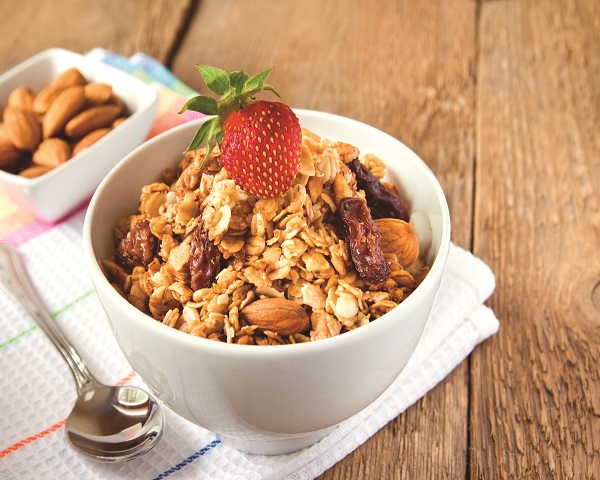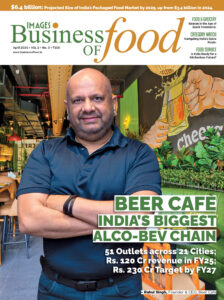Several trends are reshaping breakfast habits in India: a shift towards healthier ingredients in cereals, localization efforts by domestic players like Marico and Tata Consumer Soulfull, the growing influence of e-commerce and quick commerce, and the competition between cereals and traditional packaged meals like Upma and Poha. Amidst these changes, there are ample opportunities for brands that innovate and cater to the health-conscious desires of Indian consumers.
Indians have traditionally preferred cooking their own breakfast at home. But, with increasing urbanization and barriers to cooking consumers are gravitating towards convenient packaged breakfast options. According to Euromonitor’s Voice of Consumer: Lifestyle Survey 2023, close to 1/3rd of consumers in India depend on somebody else in their household to typically cook for them. This dependency coupled with high rate of migration from hometown to urban areas in pursuit of higher education and work is amplifying the need for prepared convenient breakfast options.
Further the Euromonitor’s Voice of Consumer: Lifestyle Survey 2023 data reveals that more than one fifth of the consumers in India would rather spend their time doing other things rather than cooking. Breakfast cereals continues to emerge as a popular convenient breakfast option with the retail value sales of the category continued to witness strong double-digit year-on-year growth of 16.5% in 2023. Increasing influence of western culture through social media coupled with quick preparation time has only helped the category grow further.
While convenience continues to be major driver in growth of breakfast cereals, the presence of healthy ingredients is fast influencing the consumer choices given breakfast is considered as an important meal of the day. The data from Euromonitor’s Voice of Consumer: Lifestyle Survey states that close to 60% of the consumers in India in 2023 look for healthy ingredients in packaged food and beverages. Realizing this, players in breakfast cereals are continuously innovating their product portfolio with inclusion of healthier ingredients.
For instance, Kellogg India Pvt. Ltd., which is the market leader in breakfast cereals with close to 40% of the market share in 2023 has continued its innovation pipeline by launching 100% plant based pro muesli, given a significant section of Indian consumers rely on plant-based proteins. Similarly, PepsiCo India Holdings Pvt. Ltd. brand Quaker has focused on launching Multigrain Oats with a focus on providing healthier ingredients.
Domestic players like Marico Ltd and Tata Consumer Soulfull Pvt. Ltd. have focused on building products keeping localization in mind and using millet as one of the key ingredients. Millet is a traditional ingredient consumed widely across Indian households with its abundant availability. The data from APEDA (Agricultural and Processed Food Products Export Development Authority) reveals that India accounts for 40.5% of worlds millet production in 2020. Further millet got traction with its visibility during G20 meetings held in India in 2023.
Marico Ltd. in 2023 launched Saffola Oats Gold which contains Jowar (Millet). This is to include healthier ingredients and at same time bridge the gap for aspirational consumers looking for a fusion of traditional ingredients in modern cereal format. Similarly, Tata Consumer Soulfull Pvt. Ltd. has concentrated its efforts on building modern breakfast cereal product portfolio by including millets like Ragi, Jowar & Bajra in its wide range of products like Millet Muesli, Ragi Bites breakfast cereals. Further, Tata Consumer Soulfull Pvt. Ltd. partnered with Reliance Retail in 2023 and organized Maha Millet Mela in a bid to encourage consumer trials by including modern consumer breakfast format along with Indian grains for consumers who are looking for convenient and healthy breakfast cereals.
While breakfast cereals are particularly popular in tier 1 cities, smaller cities and towns in India are offering great opportunities for brands to expand. The demand for these products is picking up in places beyond tier 1 cities with reverse migration and increasing digital influence. The challenge for players would be to get the pricing strategy right as consumers in smaller cities are comparatively price sensitive given lower disposable incomes. Going forward, players might look to launch smaller economical packs to initiate consumer trials.
E-commerce has continued to emerge as a fast-growing retail channel in breakfast cereals. With the emergence of quick commerce players like Swiggy Instamart, Zepto, and Blinkit, who have provided a value proposition of delivering within 15 to 20 minutes, the online demand is on the rise. With increasing internet penetration and possession of mobile phones, urban Indian consumers who are time pressed are moving towards quick commerce channels for purchase of breakfast cereals. Increasing E-commerce penetration has also made market entry easier for smaller brands and is facilitating the visibility of brands like Yoga Bar, Whole Truth and True Elements, intensifying the competition in this segment.
Further there is great addition to existing E-commerce ecosystem with entry of ONDC (Open Network for Digital Commerce) incorporated on 31st December 2021, which is set to cover larger area with its plan of expansion into tier 2 and tier 3 cities, having already covered multiple cities. With the set of new launches critical for the growth of brands, e-commerce platforms could aid in this process by allowing the option of exclusive launch of new products with quicker visibility and time to market. Further the response/ feedback loop mechanism is quicker in e-commerce channel enabling them to take a call on brand expansions to wider channels.
Even though breakfast cereals will continue to gain traction there are certain section of consumers who due to habit persistence and deep ingrained taste preferences will continue to rely on popular traditional Indian breakfast options with the need for convenience. This is where the packaged ready meals having breakfast options like Upma and Poha will act as a competition for breakfast cereals. Major players in ready meal like MTR Foods Pvt. Ltd. have built breakfast product portfolio hosting variants like Poha and Upma. MTR Foods Pvt. Ltd. also hosts cup format, which is essentially built for the on-the -go consumption occasion with travel being a regular part of most of Indians in their everyday life. Similarly, ITC Ltd. also hosts Ready to Eat Poha and Upma variants in both pack and cup format. These product variants can simply be consumed by adding hot water to content with the breakfast being ready in a few minutes.
While Breakfast Cereals will have its own set of challenges suitably scaling to smaller cities in terms of finding the right product market fit, the growth prospects are looking bright for the category in India given the rising need for convenient and healthy packaged breakfast options. To tackle the set of challenges going forward, companies will increasingly focus on launching products by including local ingredients or developing local flavours coupled with placing more emphasis on health and wellness claims to expand the adoption of Breakfast Cereals in the country.
The writer is Research Associate, Euromonitor International




